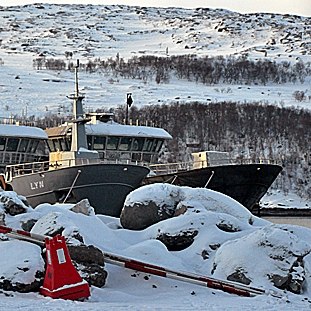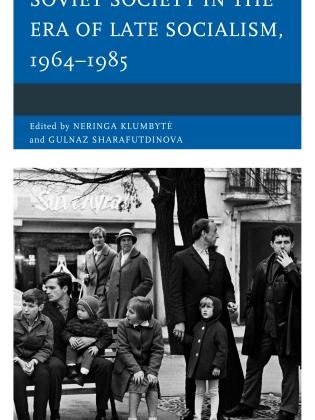In the Baltic region, Russia faces a thick and challenging international milieu. Power balancing and zero-sum-games are history. It is in such regions where the changing perceptions of power are most visible, with soft and normative aspects trumping over military force and coercion. Multilateralism dominates here, and this is a weak chain in Russian diplomacy, which, rhetoric aside, is often conducted in the Baltic Sea region out of fear of EU dominance. Initially, the concept of a Baltic Sea pan-region was a dream that actually came true. The region is one of the best examples of workable regionalism connecting Russia with Europe. Such optimism was present, at least initially, at a recent conference in Kaliningrad titled “The EU-Russia Dialogue: The Baltic Dimension” where participants had the following interesting and, at times, conflicting views.
Ruslan Grinberg, Director of the Institute of Economics, Russian Academy of Sciences, said, “Europe is doomed to stay in recession for a while, Russia desperately looks for new technologies—that is why we need a new big deal.” His implication is that both the EU and Russia are losing their relative weight in the world, which only strengthens the reasons for them to hold together. Perhaps Gorbachev’s idea of a “common European home” ought to be revisited. He posited that the EU is the safest place to enjoy life, keep money, and do business. There might be some arrogance in EU’s attitude to Russia, but Europeans certainly are right in raising the issues of democracy and mismanagement in Russia.
Henrik Lax, Chairman of the Board of the Finnish Institute for Russia and Eastern Europe, and a former member of the European Parliament, added skepticism to the discussion. Europeans are getting tougher on the Kremlin, he stated, and this has nothing to do with the much-discussed value gap. The key point of contention is the lack of common rules for the energy market. Some even started suggesting that Russia tends to violate the WTO rules instead of adapting them.
Geidre Purvanieckiene, a MP from Lithuania, revealed that some of Russia’s neighbors have doubts about Russia’s intentions. He seemed baffled by Grinberg’s informal remark that if the Baltic countries want to get cheaper gas they should think of joining the Eurasian Union. Hopefully, that was a joke, she said.
Perhaps Russia misleads itself in assuming that as soon as both Moscow and Brussels discard “value issues” from their agenda and go pragmatic, their relations would drastically improve. Russia’s opposition to the third energy package has nothing to do with ideology or values. Rather it stems from Russia’s vision of its material interests that appear dissimilar to the EU, which by now has no answer to the interest gap. “At least Germany and Russia have to find a solution,” Lax proposed, but coming back to the unused potential of the Finland-sponsored Northern Dimension program can also be an option.
In the meantime, it is not only different goals, but also different perceptions of reality that complicate Russia’s relations with its western neighbors. Lax is right when he called on Russia to identify its “real goals” in the Baltic region. But this is a hard task for the Russian Foreign Ministry.
It is quite telling that Russia has procrastinated with its agenda for the current chairmanship in the Council of Baltic Sea States (CBSS), and only released a list of four “priorities.” This included issues of modernization and visa facilitation, which were simply copied from the Russia–EU agenda, and which ironically are out of CBSS competences.
Many stories about East-West relations in this region are symptomatic of the troubles that Russia faces. Russia likes to portray itself as a country longing for de-bordering, as opposed to EU’s alleged policy of border strengthening. But the amendments to the Russian Law on State Borders introduced in 2006 make it possible to detach sizeable border-adjacent territories from normal cross-border cooperation protocols. They can be declared “special zones,” in a negative sense because they are where no economic activity and foreign capital is feasible.
A colleague recently told me that if you travel from Murmansk to the town of Kirkenes in Norway, border guards can appear for “the first inspection” as far as one hundred kilometers from the border.
Novy Urengoi has recently become a Soviet-style closed city even for Russian citizens who need special permission to move in.
Or take the case of a scholar from Arkhangelsk, Ivan Moseev, who was recently accused of promoting ideas of Pomor autonomy using Norwegian funds.
In fact, while the Russian Foreign Ministry praises Norway as one of the few Russian partners that has eased trans-border formalities, the Federal Security Service, in fact, blamed it for fostering Russia’s disintegration.
One may remember when German tourists who were entitled to stay in Russia for 72 hours without visas (specifically to visit Kaliningrad) but were in fact blocked while on the sea crossing by naval security services. This does not seem to propagate Russia’s openness to visa-free travel with Europe.
Peter Schulze, former head of the Friedrich Ebert Foundation in Moscow said that the Kremlin often misunderstands Western institutions. In particular, he referred to Vladimir Putin’s wish to join NATO in 2000 and Secretary General Robertson’s polite reminder that non-members must apply for membership. Schulze interpreted Putin’s reaction as: great powers don’t need to apply. Schulze said that what is happening nowadays in Russia is dangerous for Moscow’s relations with the EU,
He referred to the growing activities of certain fractions in the German parliament (especially the Green Party) that seek to drastically revise the decades-long German policy of unconditionally accommodating Russia. If those times are gone, disillusionment is further ignited on both sides.
From the outset, Russian relations with the EU were marred by hollow symbolism. The Partnership and Cooperation Agreement, which formally expired though it is automatically prolonged every year, was only a broad declaration of intent. It has lots of illusions and simple hopes. For Russia, it meant that European doors are open. But Russia did little to enter those doors. The EU, from its part, was insufficiently clear in explaining why some Russian demands can’t be easily met, such as in regard to visa issues. Perhaps vastly increased clarity is needed. The EU would be better off if it added clarity about its reservations, for instance on the purely technical aspects of visa liberalization (the Russian government only recently started making biometric passports). Another is explicitly political: for years Moscow has disbursed Russian passports to residents of unrecognized territories like Transniestria, Abkhazia, and South Ossetia, which obviously irks the EU’s due processes.
As a final example, take the conflict of interest that Europeans see: Russia engages in the obsolete practice of registering foreigners in each city they visit, which does’nt quite mesh with Russia’s oft-repeated declarations on reducing visa formalities.
Andrey Makarychev is a Guest Professor at the Free University of Berlin, blogging for PONARS Eurasia on the Russia-EU neighborhood.










